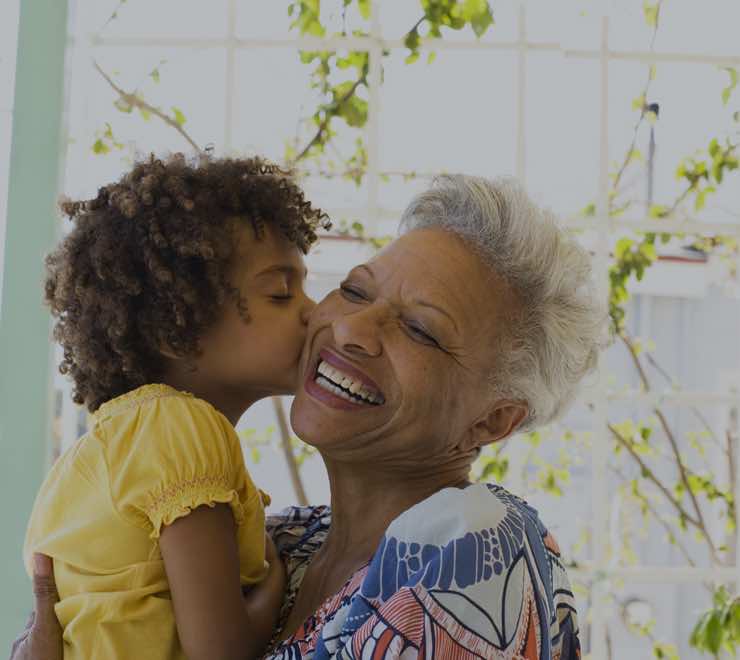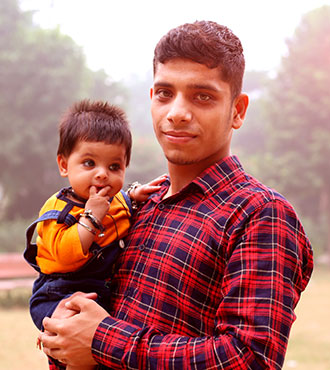Some family challenges make it difficult or unsafe for young people to keep living at home.
Young people should receive the care, protection, love and support they need in order to thrive. Unfortunately, this doesn’t happen in some families. If child protection authorities feel that you’re living in an unsafe or unhealthy situation, they may place you “in care.”
Young people can be placed in care for different reasons, such as:
- a parent is struggling with a mental disorder, emotional challenge or physical illness that is not properly managed
- a parent is dealing with a drug or alcohol addiction
- parents have died before their children are ready to care for themselves
- a young person is struggling with a mental disorder, emotional challenge or physical illness that is not properly managed
- a young person is being abused or neglected
What does “in care” mean?
Being placed in care means you are removed from your home for a period of time and placed in the care of someone else. This could mean living in a foster home, in a group home, in another care facility or with other family members.
A foster home usually includes one or two adults who live in the home (possibly with their own children) and care for the young people who are placed there.
A group home usually has staff who work and take care of the young people there.
Who makes the decision to place a child in care?
Child protection services makes the decision to place a young person in care. They must explain the reasons to a judge and the judge decides if the young person will stay in care.
Child protection workers often use information provided by the child, people in the community (such as neighbours and teachers) and occasionally parents to help them make a decision. Sometimes, parents give their consent for a child to live in care, depending on the situation. In almost all cases, the plan is for the child to return to the family home when it’s safe.
Do I have to go into care?
Yes, a young person has to go into care if a court order says they must. Going into care is often a temporary solution as social workers try to help parents resolve certain challenges. Sometimes, if there is no alternative, young people stay in care permanently. Usually, child protection agencies try to place kids with someone they know (like friends or relatives). If this isn’t possible, young people are placed in foster or group care.
Who can I talk to?
When you go into care, you’re assigned a social worker. This person ensures that all your needs are met and that your wishes are expressed to the child protection team. You can also talk to family members, foster parents, teachers, Kids Help Phone or anyone else you trust.
Often, social workers and foster parents will have helped families in similar situations to yours. Remember, they’re there to help you in any way they can.
What if I have concerns about my social worker?
There is a big difference between your social worker not doing what you want and not listening to you or being there for you. You may not always agree with the decisions your worker makes and there can be times when you have difficulties with them. However, you have the right to talk to someone else about your concerns if:
- you feel like your worker is not listening to you
- your worker is not returning your calls
- you don’t get along with your worker
You can talk about your concerns with your foster parent or caregiver, or you can call your worker’s office and talk to their supervisor.
How will the foster family or group home treat me?
Your foster family or group home should make you feel cared for and meet all of your needs. You have the right to:
- live in a safe home
- participate in decisions about your life and care
- privacy
- proper care including regular meals, attending school, medical and dental care, clothing and participation in recreational activities
- visit with your family, unless a judge or social worker thinks it’s unsafe
- practise your religion
- learn about and practise your cultural traditions
- have your individuality respected, including your sexual orientation, gender identity and abilities
- be free from emotional, physical and sexual harm
If you’re concerned about the way you’re treated in care, you need to tell your social worker. You may also speak with a lawyer if you feel like your rights aren’t being respected.
Adjusting to your new living situation
Living with a foster family, in a group home or in a special care facility can be a difficult change. Being in unfamiliar surroundings with people you don’t know can be scary and uncomfortable at first. It’s common to have lots of questions, like:
- Will these people like me, and will I like them?
- What if I don’t get along with these people?
- Will there be a lot of rules?
- Will I go to a new school?
- Will I get to see my family and friends?
- When can I go home?
- Is my family mad at me?
- Is it still OK to love my family?
Adjusting to your new living situation will take time. As the people and home become more familiar, you’ll likely feel more comfortable. And remember, you’re not alone. Try to reach out and talk with the people around you including foster parents, social workers, staff or any other kids.
Things to keep in mind
It always takes time to get used to a new situation. Remember that the purpose of care is to make things better and safer for you.
To help yourself feel more comfortable in care, you can:
- talk to friends
- bring some of your belongings with you
- try to continue participating in activities you enjoy
- find someone you can talk to about how you’re feeling (foster parent, teacher, social worker, friend or Kids Help Phone)
- start a journal or express yourself through art
If you have questions about being in care, try talking to a safe adult like a teacher, social worker or guidance counsellor.
























